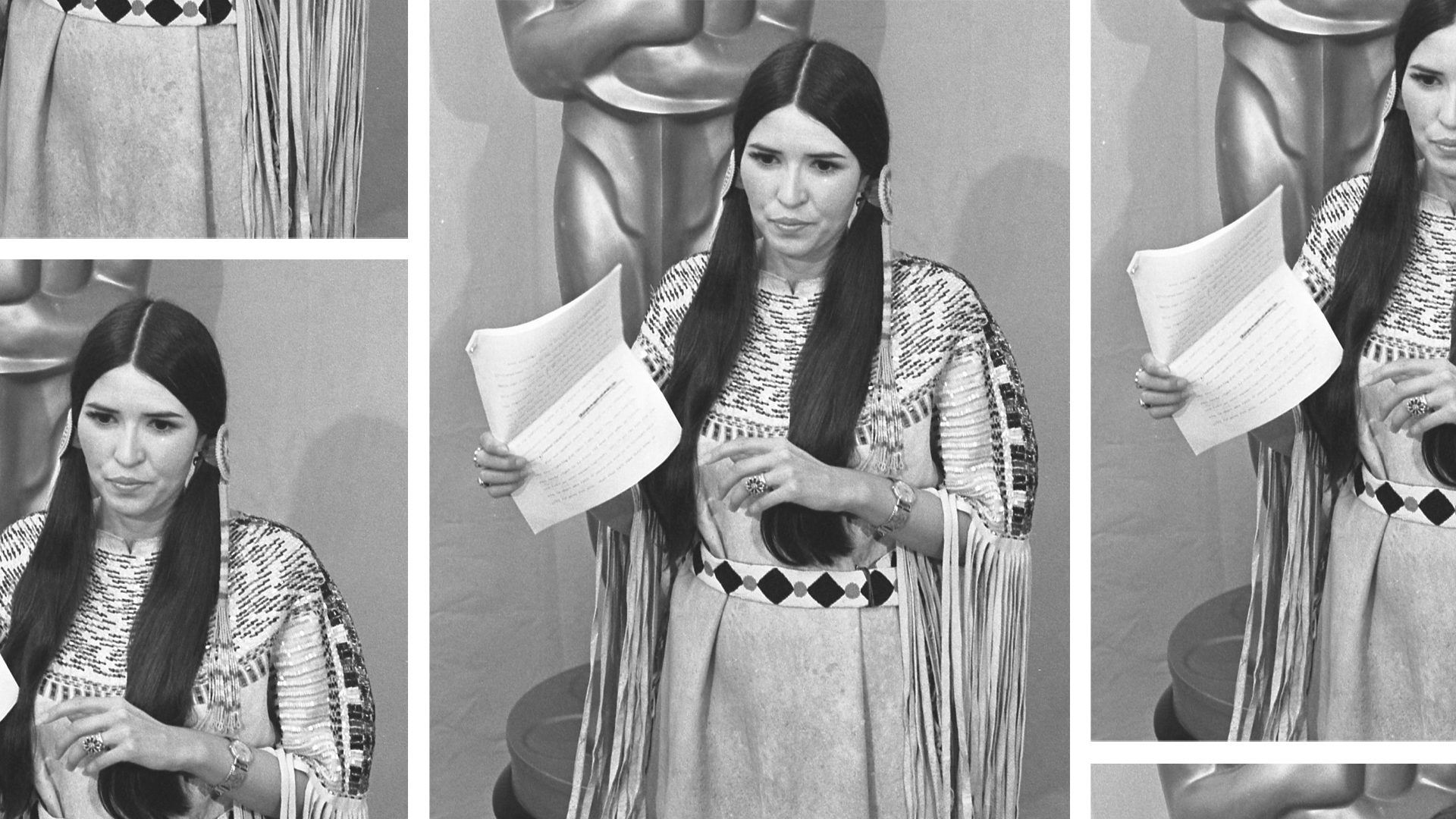Apache activist and actress, Sacheen Littlefeather, was booed off stage after accepting an Oscar on behalf of Marlon Brando. Now, 50 years later, the Academy has finally apologised.
When Marlon Brando won an Academy Award for ‘The Godfather’ in 1973, he wasn’t there to receive his accolade. Instead, indigenous actress Sacheen Littlefeather, of Apache heritage, walked on stage to collect the Oscar on Brando’s behalf.
Littlefeather’s surprise appearance was part of a political statement by Brando, who wanted to shine a light on the mistreatment and misrepresentation of indigenous people in Hollywood.
It remains one of the most-viewed Oscar speeches of all time, and is considered the Academy Awards’ most overt political moment.
But Littlefeather was not warmly received at the time. In a speech penned by Brando, she told the audience of the Wounded Knee occupation – a 1973 protest by Native Americans following failure by the US government to fulfil treaties with indigenous Americans.
The response was booing and discriminatory statements. Backstage, Littlefeather was even threatened with arrest. Actor John Wayne was reportedly so enraged he had to be restrained from charging on stage.
In the years since, Littlefeather has heard nothing from the Academy – despite claims its tried to face up to its muddy racial past. Instead, the actress received a vitriol of hate from both the public and the media, and had her acting career placed on hold by the federal government.
But on Monday, almost 50 years after the fact, the Oscars released a statement apologising for the ‘abuse’ Littlefeather experienced as a result of her appearance on the show.
The letter was issued by Academy president David Rubin, and will be read in full at a September Academy Museum event honouring Littlefeather herself.
‘The emotional burden you have lived through and the cost to your career in our industry are irreparable’ Rubin said. ‘For too long the courage you showed has been unacknowledged. For this, we offer both our deepest apologies and our sincere admiration’.
In an interview with The Hollywood Reporter, Littlefeather shared her ‘stunned’ response to the apology. ‘I never thought I’d live to see the day I would be hearing this, experiencing this’, she said.
Littlefeather’s memories of the night reflect on changes to the film industry in recent years – as well as struggles to undo years of inequality.
‘I focused in on the mouths and the jaws that were dropped open in the audience, and there were quite a few’, Littlefeather said in an interview with the Academy. ‘But it was like looking into a sea of Clorox, you know, there were very few people of colour in the audience’.
Conversations around representation at the Oscars have grown year on year. But controversy still follows the Academy over its lack of diversity.




















